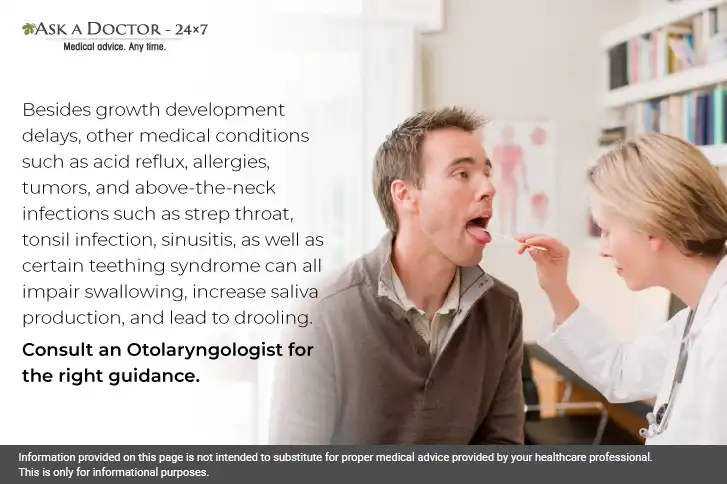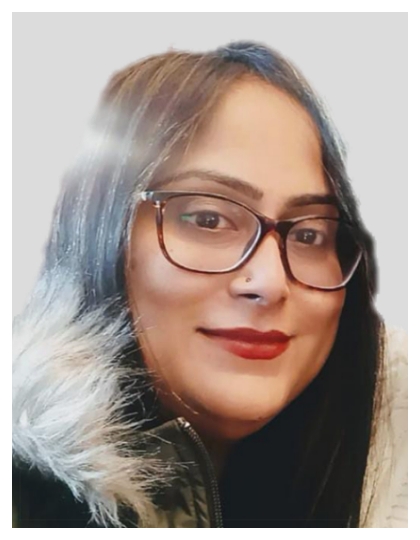Why Do People Drool In Their Sleep And How To Prevent It?
Though drooling while sleeping is relatively common, sometimes it can be a sign of an underlying illness. If you drool when you sleep, it's necessary to find out the cause of it and get it fixed with medical help. Remember, even if it's not adversely affecting you, it's not a condition to completely ignore.
In this blog, we will help you know all about drooling. Read on…
What Causes Drooling?

Hypersalivation, medically known as sialorrhea or ptyalism, can cause drooling - a condition that leads to unintentional saliva dribbling from the mouth. Hypersalivation can be caused by excessive production of saliva, which results in difficulty swallowing, or the inability to retain saliva within the mouth.
Drooling occurs in healthy babies until approximately six months of age because that is when their swallowing reflex and lip closure properly develop. Researchers have proven that drooling can occur in children up to the age of 2 (and in some cases, up to the age of 4), but beyond that, it’s not normal.
The other factors that contribute to drooling include teething syndrome, digestive issues like gastrointestinal infections (GI) and acid reflux, throat, and certain oral infections, neuromuscular and psychological disorders, as well as sleeping disorders in conjunction with psychological disorders. Therefore, if you or any of your known are dealing with drooling issues, consider seeking timely medical help to avoid unnecessary medical complications.
How Can You Prevent Drooling?
Treating hypersalivation will effectively control drooling. For relief, consider following the below methods:
1. Speech Therapy
Depending on the severity of drooling, speech pathologists and occupational therapists may recommend speech therapy. The goal is to improve jaw stability, lip closure, tongue strength, and mobility. A head-back wheelchair device is used to correct the patient's body posture and swallowing abilities eventually reducing drooling. Speech therapy may take a long time, but the techniques improve swallowing and decrease drooling.
2. Biofeedback Interventions and Automatic Cueing Techniques
Biofeedback and automatic cueing techniques have been proven to help patients with mild to moderate drooling and neurologic dysfunctions. Research has shown that these techniques were successful in patients older than eight years with mild drooling issues. This technique involves tracking the patient's swallowing and wiping their drool with the help of a cue or an electronic device that beeps at regular intervals for each action.
3. Oral Treatment
Dentists and orthodontists can be consulted for dental or oral diseases and malocclusion to alleviate drooling. An oral appliance is placed in the mouth to improve swallowing habits, lip closure, and tongue positioning.
4. Acupuncture
A study in 2001 showed that acupuncture is an excellent treatment for excessive drooling. During the study over six weeks, children with drooling issues were treated successfully by placing needles in 5 different locations on the tongue. Further studies indicate the effectiveness of acupuncture in the treatment of drooling.
5. Gastroesophageal Reflux Control
Patients with developmental delays or neurologically-compromised patients can suffer from gastroesophageal reflux along with excessive drooling. Researchers have suggested that controlling the reflux will help control drooling.
6. Treating Allergies and Sinus Problems
Sinus problems and allergies also contribute to sialorrhea and nasal congestion. In such conditions, inhalation is through the mouth rather than the nose, leading to saliva flow through the mouth. You can ask an online Otolaryngologist to identify whether your drooling is associated with ENT problems or aerodigestive obstruction like adenotonsillar hypertrophy and macroglossia and get treatment accordingly.
7. Botox Therapy
A study has shown that Botox therapy is an effective treatment for drooling or hypersalivation. Botulinum toxin type A injection administered into the salivary glands (parotid and submandibular glands) reduces salivary flow without major complications. However, it is necessary to repeat injections for optimal results.
8. Medication and Surgical Intervention
In case of severe drooling, medication helps reduce salivation. Usually, anticholinergic medicines such as Scopolamine or Glycopyrrolate are prescribed to reduce drooling. However, surgical methods such as the removal of salivary glands or salivary duct rerouting and ligation are advised in worst-case scenarios to treat excessive drooling.
Besides medication and surgery, radiation therapy to the salivary glands is also considered a good treatment option in elderly patients who cannot tolerate surgeries and medical therapies.
Home Remedies for Drooling
Some home remedies can be tried before opting for medication or surgery:
- Change sleeping positions. Sleeping on the back can fix the problem as gravity pulls the palate, tonsils, and tongue backward, and prevents saliva from seeping out. A wedge pillow can also be used while sleeping.
- Sip on sesame oil. After brushing the teeth and cleaning the tongue, take approximately 30 ml of sesame oil and keep it in the mouth for 20 minutes, then spit it out.
- Drink plenty of water to reduce excessive saliva production. Teeth-brushing and rinsing with mouthwash can dry out the mouth temporarily. A good night's sleep, regular exercise, yoga, and a healthy diet will reduce drooling.
- Try sucking in a cinnamon stick or clove. It is a great home remedy for reducing excess saliva in the mouth.
If you know anyone dealing with drooling, make them come out of the social stigma and encourage them to seek medical help to avoid the hidden health dangers associated with it, if left unattended.
For more information about excessive drooling during sleep, You can Ask an Otolaryngologist online, at Ask a Doctor 24x7.
Recently Answered Questions Related to Drooling
- Is Ameprasake And Reflux Medication Sufficient To Treat Shortness Of Breath And Acid Reflux?
- The Child has a Fever, has been Drooling, and has Runny Nose. Is Her Molar Coming?
- Reasons for Excess Salivation In Infants
- What Causes Excessive Salivation?
- Is Spitting Saliva Continuously Good For Health?
- What Can Cause An Aged Person In Loss In Feeling, Dropping Things?
- What Causes Persistent Hiccup, Drooling, and Shaking For Kidney Failure Patients with Heart Problem?
Disclaimer: Information provided on this page is not intended to substitute for proper medical advice provided by your healthcare professional. This is only for informational purposes.
Ask a Specialist
Recent Questions


